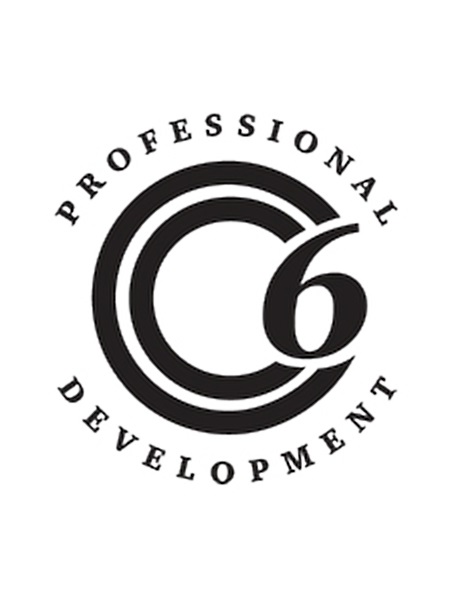GRADUATE SCHOOL PROFESSIONAL
DEVELOPMENT CORE COMPETENCIES
A successful career after graduate school requires more than academic knowledge and
skills, whether you choose to pursue a job in an academic, industry, government or
non-profit organization. You also need to build core competencies in critical thinking,
leadership and management, domain-specific knowledge, communication, professionalism,
teamwork, and ethics, and the Texas Tech University Graduate School is here to help
you in that process.
Find Learning Resources Here
Find Asynchronous Webinars & Workshops Here


Critical Thinking
While there are numerous complex definitions of critical thinking, Richard Paul, from the Center for Critical Thinking, and Linda Elder, from the Foundation for Critical Thinking, define it as “the art of analyzing and evaluating thinking with a view to improving it” (2006). Effective critical thinkers question accepted standards, identify problems, and explore alternatives... read more and find additional resources here
- Analyzing complex problems
- Raising vital questions
- Gathering and assessing information
- Thinking open-mindedly and addressing multiple perspectives
- Solving problems thoughtfully and fairly

Communication
Successful communication entails using compelling methods to describe or present an idea, product, or philosophy to an intended audience through the most appropriate method, whether oral, written, visual, or virtual. Effective communication is fundamental to work and daily life; it helps students perform better, appeals to employers, and facilitates satisfying personal and professional relationships... read more and find additional resources here
- Stating ideas clearly
- Communicating ethically
- Recognizing when it is appropriate to communicate
- Identifying communication goals
- Selecting appropriate and effective modes for communicating
- Demonstrating credibility
- Identifying and managing misunderstandings and conflict
- Being open-minded about other perspectives (see also the section on Cultural Responsiveness)
- Listening attentively

Collaboration
In any future career, you must be a skillful collaborator who can work with others towards a common goal. Collaboration is vital to success, whether in a research lab, in the field, in the classroom, on a committee, or in an office setting. Fruitful collaborations are founded on respect, open-mindedness, effective communication, and the ability to tolerate conflict (Beebe & Masterson, 2000; Bertcher, 1994). Successful collaborative groups demonstrate: find additional resources here
- Clear organization and expectations, with defined roles that arise from group members’ strengths
- Multi-disciplinary
- Joint dedication to a common goal
- Cohesion through shared ground rules and vocabulary
- Mutual respect, trust, and responsibility
- Integration

Culture
A notoriously difficult term to define, in its simplest definition, culture can be thought of as the avenue in which our background influences our perception of the world and its people. Ginsberg and Wlodkowski (2009) write that “who we are culturally and how we interact with the world is an intriguing intersection of language, values, beliefs, behaviors, and experiences that pervades every aspect of a person's life and continually changes and evolves”: read more and find additional resources here
- Confronting your own beliefs and engaging in cultural self-assessment
- Being conscious of the dynamics inherent when cultures interact
- Possessing institutionalized cultural knowledge
- Developing adaptations reflecting an understanding of different cultures

Commitment
We define commitment as the dedication to achieving success in a goal, whether self-determined or appointed. In her book Grit: The power of passion and perseverance (2016), psychologist Angela Duckworth asserts that “grit,” or a “never give up attitude,” rather than simply aptitude, is one of the most crucial components to success. She identifies four elements in achieving “grit”: find additional resources here
- Interest in and passion for what you are pursuing
- Practice, including everyday stamina to engage in consistent, deliberate practice, endurance in the face of adversity, and willingness to put up with uncomfortable hard work
- Purpose, or a sense that your work matters to you and the world
- Hope, or the expectation that your efforts can improve your future. Duckworth adds that “the hope that gritty people have has nothing to do with luck and everything to do with getting up again” (p. 169).

Creativity
While creativity is yet another difficult term, we can think of it as drawing from personal experiences and talents to bring something unique and intriguing into the world. More specifically, authors such as Weisberg (1993) or Mumaw and Oldfield (2006) conceptualize creativity as problem solving with relevance, value, and novelty and suggest that it is a skill that anyone can develop rather than... read more and find additional resources here
- Preparation, or the time and effort spent acquiring information and experience necessary to arrive at a new point of view
- Incubation, or stepping back from the problem or creation to allow your mind to contemplate and work through it
- Illumination, or the “a-ha” moment when you discover the insights needed to move forward
- Verification, or exerting disciplined effort to finish and assess the “creation.”
Find References Here
Graduate School
-
Address
Administration Building 328, Texas Tech University, 2625 Memorial Circle, Lubbock, TX 79409-1030 -
Phone
806.742.2787
